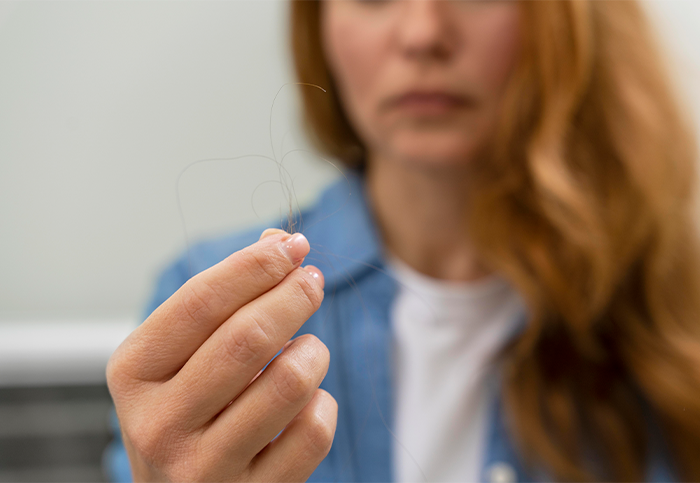Osteoporosis – Why Bones Are Getting Weak?
What does osteoporosis mean?
A condition when bones become too soft to bear bodyweight and start breaking easily is termed osteoporosis. In other words, bones are filled with different minerals and when these minerals start leaking out, creating pores in bones, and making the bones soft or weak enough to break easily, is the condition known as osteoporosis.
It is not always the lack of minerals to blame for making the bones weak, but sometimes the uncontrolled breakdown of bone-forming proteins can also be the cause.
Why bones become weak?
In the latest National Nutrition Survey, conducted in 2018, it was concluded that almost 26% of the female population within the reproductive age is suffering from low calcium levels. And, this may result due to several imbalances like nutritional deficiencies, unhealthy lifestyle, or disturbed hormone regulation.
When we look into the dietary aspect, we may learn that it is not just about abnormal levels of dietary calcium in the body, in fact, a couple of other factors like high levels of protein and phosphorus may also contribute to this porous formation of bones. Both these nutrients, when taken in large amounts, may affect the normal metabolism of dietary calcium leading to excessive calcium loss from the body.
Family history, physical inactivity, abnormal height, and weight are also some of the leading factors in the onset of osteoporosis.
Physical activity and bone health
An active lifestyle will not only help in weight management but can be an important factor in balancing bone mineral density, as well. The prolonged physical inactivity not only causes mineral loss but also results in severe muscle loss, further increasing bone calcium loss. This is why a little to 40 minutes of physical activity is recommended for the mobilization of calcium in the bones.
How diet affects bones?
When we talk of diet, it is not just about eating a variety of foods and includes all the harms or benefits those foods will bring for the human body. Similarly, different foods have different impacts on our bodies, whether some do that directly or indirectly.
A person who is consuming meat products, dairy products, eggs, and other protein sources, is taking enough protein to maintain his/her muscular health while the excessive protein is excreted out through urine. But wait a sec! It’s just not the protein that is flushed out of the body, but it also takes essential calcium with it and bones become soft with the increase in calcium leakage. The same is the case when sugary foods are taken in excess.
Another food product with damaging effects on bone health is soft drink or cola that is rich in phosphoric acid and almost zero in calcium content. And, this imbalance between calcium and phosphorus is seriously harmful to bones and can cause the stored calcium to leach out of the bones.
These were the dietary habits that should be avoided to maximize bone health. Now let’s look into some dietary habits that have a positive effect on bone mineral density, and should be a part of our daily routine for people who are worried about their bone strength.
Vitamin D is essential for calcium absorption and can be obtained from sunlight, egg yolk, fatty fish, and fish oil. Besides, foods that contain soy or milk are extraordinary sources of dietary calcium.
Dietary supplements to take in osteoporosis
Why does the need for dietary supplements come, in the presence of natural food sources? Two reasons; first, supplements provide a better absorption rate than food items, and secondly, dietary supplements can be a perfect alternative in the absence of nutrient-rich foods.
1. Bonex-D
Bonex-D is a perfect dietary supplement for those suffering from weak bones. It contains Calcium Carbonate and Vitamin D3 which not only help in the formation of strong bones but also to develop better muscle contraction and a healthier immune system.
2. Nucal-Z
Calcium is not the only mineral needed for bone strength; magnesium is also a very important component of bone structure. And, to enhance the absorption of Calcium, this dietary supplement also contains Vitamin D3. Moreover, Zinc is also present in this dietary supplement that can support bone health by protecting them from oxidative damage.
3. Nucal-M
This is another dietary supplement with a combination of Calcium and Vitamin D3, but with a bonus of Magnesium. So, this trio will not only support bone health but will also help improve muscle movement and nerve conductions.
Our health is our responsibility, so we should start taking care of it, in a healthy way!
References:
• https://www.healthline.com/health/managing-osteoporosis/7-day-osteoporosis-diet-plan#key-nutrients
• https://my.clevelandclinic.org/health/diseases/4443-osteoporosis
• https://pubmed.ncbi.nlm.nih.gov/20035439/



